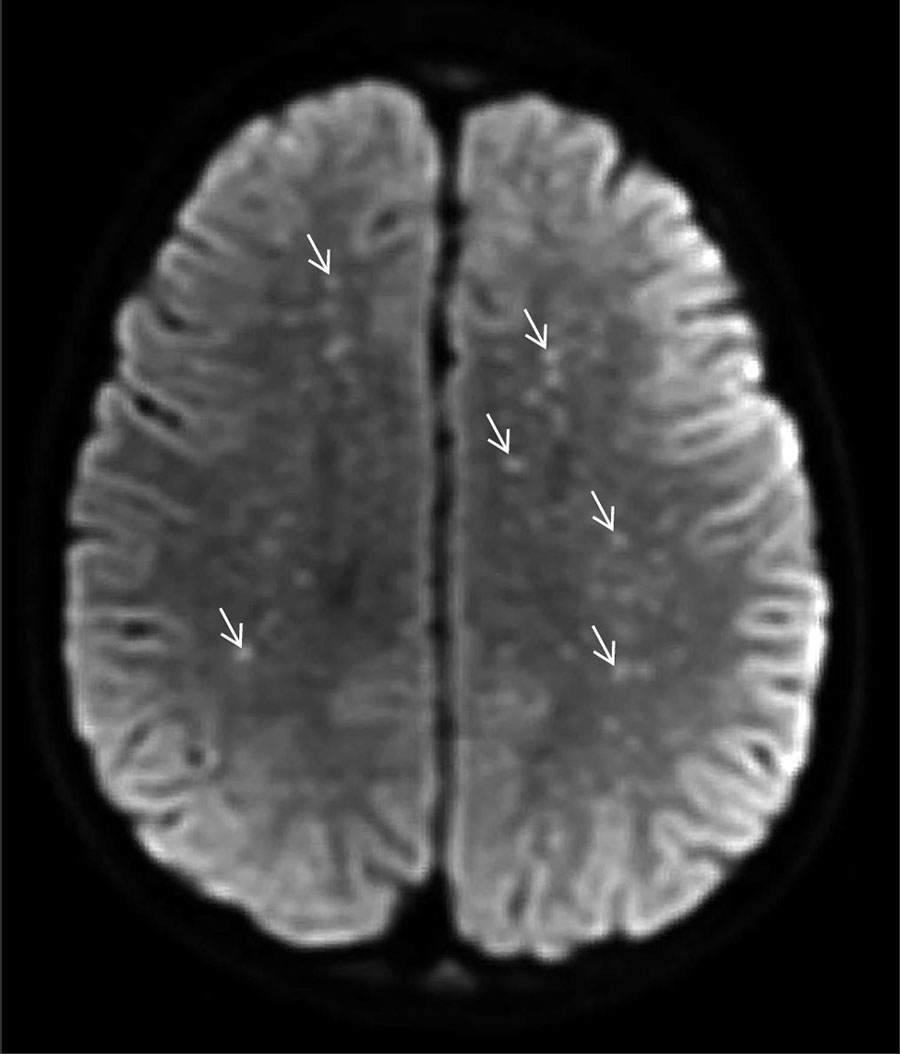Volume 30, Number 11—November 2024
Synopsis
Rocky Mountain Spotted Fever in Children along the US‒Mexico Border, 2017–2023
Figure 1

Figure 1. Diffusion-weight magnetic resonance imaging of the brain of a previously healthy 5-year-old boy from Tecate, Mexico, who had Rocky Mountain spotted fever and was treated at Rady Children’s Hospital, San Diego, California, USA. The “starry sky” appearance shows numerous punctate foci of cytotoxic edema involving the supratentorial white matter (arrows), in keeping with acute to subacute injury from small vessel vasculitis.
1Current affiliation: University of California Davis, Davis, California, USA.
Page created: October 07, 2024
Page updated: October 22, 2024
Page reviewed: October 22, 2024
The conclusions, findings, and opinions expressed by authors contributing to this journal do not necessarily reflect the official position of the U.S. Department of Health and Human Services, the Public Health Service, the Centers for Disease Control and Prevention, or the authors' affiliated institutions. Use of trade names is for identification only and does not imply endorsement by any of the groups named above.